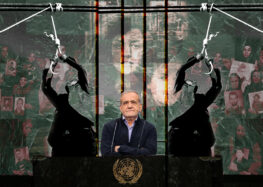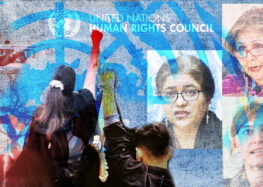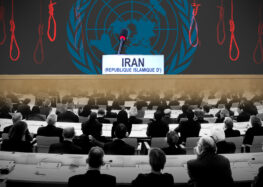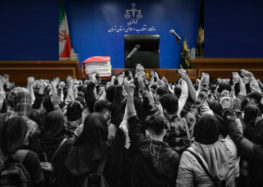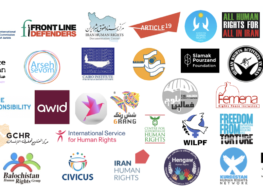UN Says Iran’s “Atrocity Crimes” Must Be Investigated
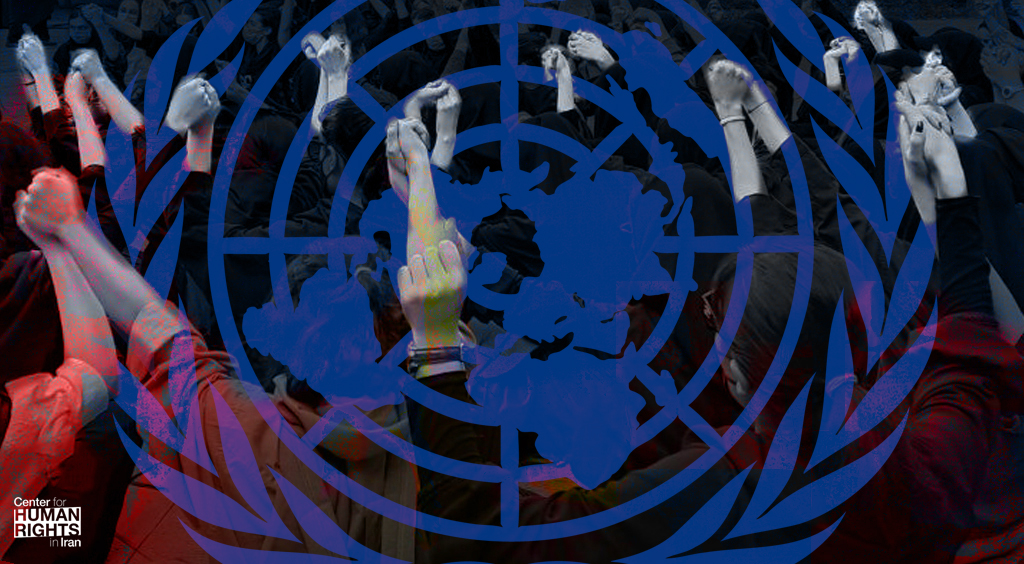 UN’s Top Expert on Iran Calls for Prosecution of Responsible Iranian Officials
UN’s Top Expert on Iran Calls for Prosecution of Responsible Iranian Officials
July 22, 2024 – The UN’s top human rights expert on Iran has called for an international mechanism to investigate and prosecute those responsible for “atrocity crimes” in the Islamic Republic, stating in an unprecedentedly strong statement that “the Iranian regime and its leaders should not be allowed to escape the consequences of their crimes against humanity and genocide.”
In a July 22, 2024 press release announcing the release of his final findings before his mandate ends on July 31, Javaid Rehman, the UN Special Rapporteur on human rights in Iran, said, “the ‘atrocity crimes’ of summary, arbitrary and extra-judicial executions during 1981-1982 and in 1988 amounted to crimes against humanity of murder and extermination, as well as genocide.” He added that “the executions included women – some reportedly raped before being executed – and many children.”
The 1981-82 period refers to the killing of tens of thousands of political opponents as the Islamic Republic sought to consolidate its domestic power, and the 1988 crimes refer to the state’s mass execution of some 5000 political prisoners who were already serving their issued prison sentences.
Rehman has previously emphasized the need for accountability for more recent Islamic Republic atrocities, including those committed during the November 2019 protests when anywhere from several hundred to over a thousand protesters were gunned down in the streets by state security forces, and during the 2022-2023 “Women, Life, Freedom” protests, when over 500 protesters were killed by state security forces, hundreds were intentionally blinded, tens of thousands arbitrary arrested, and detainees, including women and children, were tortured.
“There should be no impunity for such gross human rights violations, regardless of when they were committed. …An independent international investigative and accountability mechanism for Iran is absolutely essential,” the Special Rapporteur said.
Rehman’s statement is reinforced by the report released earlier this year by the UN’s Independent International Fact-Finding Mission on the Islamic Republic of Iran, which amassed massive amounts of evidence and conclusively found that the Iranian government committed crimes against humanity during its suppression of the “Woman, Life, Freedom” protests.
The Center for Human Rights in Iran (CHRI) strongly supports the Special Rapporteur’s call, and urges international governments to take decisive action by leveraging the principle of universal jurisdiction to prosecute Iranian officials implicated in these crimes in national courts.
Find the complete UN Special Procedures press release below.
Iran: ‘Atrocity crimes’ must be investigated and perpetrators prosecuted, says Special Rapporteur
GENEVA – A UN Special Rapporteur said an international mechanism is essential to investigate and prosecute those responsible for “atrocity crimes” in Iran, including the extra-judicial killing of thousands of arbitrarily arrested prisoners during a crackdown by authorities on political dissent during the 1980s.
Javaid Rehman, the Special Rapporteur on the situation of human rights in the Islamic Republic of Iran – in final findings before his mandate ends on 31 July – said that the “atrocity crimes” of summary, arbitrary and extra-judicial executions during 1981-1982 and in 1988 amounted to crimes against humanity of murder and extermination, as well as genocide. The executions included women – some reportedly raped before being executed – and many children. Crimes against humanity also included imprisonment, torture and enforced disappearances.
“The Bahá’ís were targeted with genocidal intent and persecution, targeting and victimising of religious, ethnic and linguistic minorities and political opponents continued with complete impunity during, and since, the first decade of the establishment of the Islamic Republic in 1979,” Rehman said.
Among findings contained in this final paper, the Special Rapporteur said the investigative and accountability mechanism should conduct impartial and transparent investigations under international law and preserve evidence with the aim of further criminal prosecutions. “The continued concealment of the fate of thousands of political opponents and the whereabouts of their remains amounts to the crime against humanity of enforced disappearance,” Rehman said.
“I have observed the failure to ensure justice and accountability in Iran and how this is impacting the families of the victims and the current human rights situation in the country.”
The Iranian government continues to deny the “atrocity crimes”, perpetrators have not been brought to justice.
“I repeat, there should be no impunity for such gross human rights violations, regardless of when they were committed. The Iranian regime and its leaders should not be allowed to escape the consequences of their crimes against humanity and genocide. An independent international investigative and accountability mechanism for Iran is absolutely essential,” Rehman said.
The Special Rapporteur has been in contact with the Islamic Republic of Iran on this matter.
This report was made possible from donations by readers like you. Help us continue our mission by making a tax-deductible donation.

